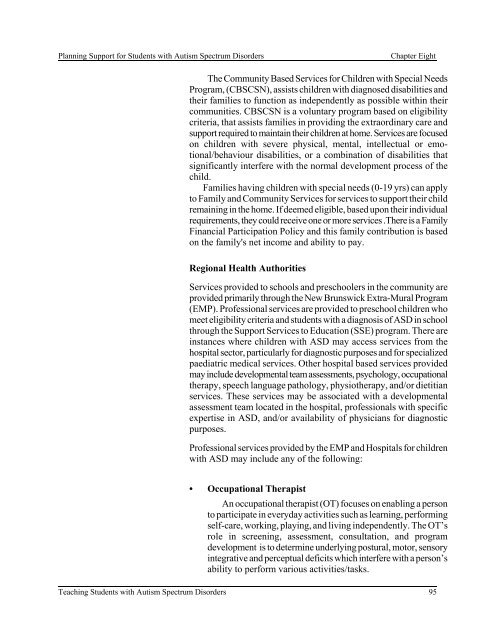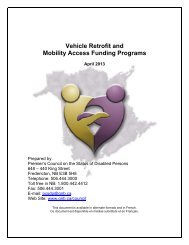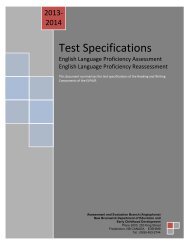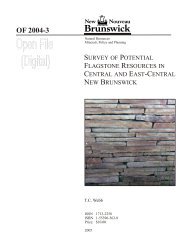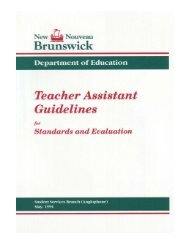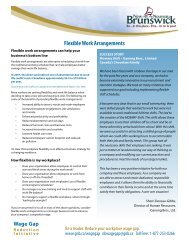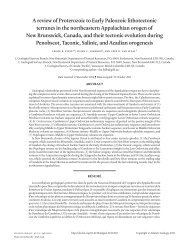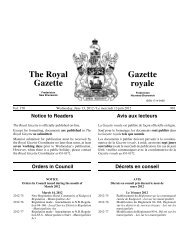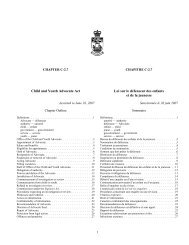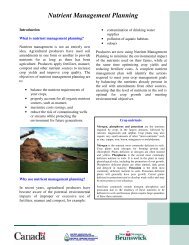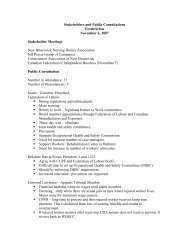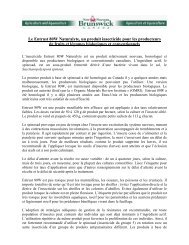Teaching Students with Autism Spectrum Disorders
Teaching Students with Autism Spectrum Disorders
Teaching Students with Autism Spectrum Disorders
Create successful ePaper yourself
Turn your PDF publications into a flip-book with our unique Google optimized e-Paper software.
Planning Support for <strong>Students</strong> <strong>with</strong> <strong>Autism</strong> <strong>Spectrum</strong> <strong>Disorders</strong> Chapter Eight<br />
The Community Based Services for Children <strong>with</strong> Special Needs<br />
Program, (CBSCSN), assists children <strong>with</strong> diagnosed disabilities and<br />
their families to function as independently as possible <strong>with</strong>in their<br />
communities. CBSCSN is a voluntary program based on eligibility<br />
criteria, that assists families in providing the extraordinary care and<br />
support required to maintain their children at home. Services are focused<br />
on children <strong>with</strong> severe physical, mental, intellectual or emotional/behaviour<br />
disabilities, or a combination of disabilities that<br />
significantly interfere <strong>with</strong> the normal development process of the<br />
child.<br />
Families having children <strong>with</strong> special needs (0-19 yrs) can apply<br />
to Family and Community Services for services to support their child<br />
remaining in the home. If deemed eligible, based upon their individual<br />
requirements, they could receive one or more services .There is a Family<br />
Financial Participation Policy and this family contribution is based<br />
on the family's net income and ability to pay.<br />
Regional Health Authorities<br />
Services provided to schools and preschoolers in the community are<br />
provided primarily through the New Brunswick Extra-Mural Program<br />
(EMP). Professional services are provided to preschool children who<br />
meet eligibility criteria and students <strong>with</strong> a diagnosis of ASD in school<br />
through the Support Services to Education (SSE) program. There are<br />
instances where children <strong>with</strong> ASD may access services from the<br />
hospital sector, particularly for diagnostic purposes and for specialized<br />
paediatric medical services. Other hospital based services provided<br />
may include developmental team assessments, psychology, occupational<br />
therapy, speech language pathology, physiotherapy, and/or dietitian<br />
services. These services may be associated <strong>with</strong> a developmental<br />
assessment team located in the hospital, professionals <strong>with</strong> specific<br />
expertise in ASD, and/or availability of physicians for diagnostic<br />
purposes.<br />
Professional services provided by the EMP and Hospitals for children<br />
<strong>with</strong> ASD may include any of the following:<br />
• Occupational Therapist<br />
An occupational therapist (OT) focuses on enabling a person<br />
to participate in everyday activities such as learning, performing<br />
self-care, working, playing, and living independently. The OT’s<br />
role in screening, assessment, consultation, and program<br />
development is to determine underlying postural, motor, sensory<br />
integrative and perceptual deficits which interfere <strong>with</strong> a person’s<br />
ability to perform various activities/tasks.<br />
<strong>Teaching</strong> <strong>Students</strong> <strong>with</strong> <strong>Autism</strong> <strong>Spectrum</strong> <strong>Disorders</strong> 95


